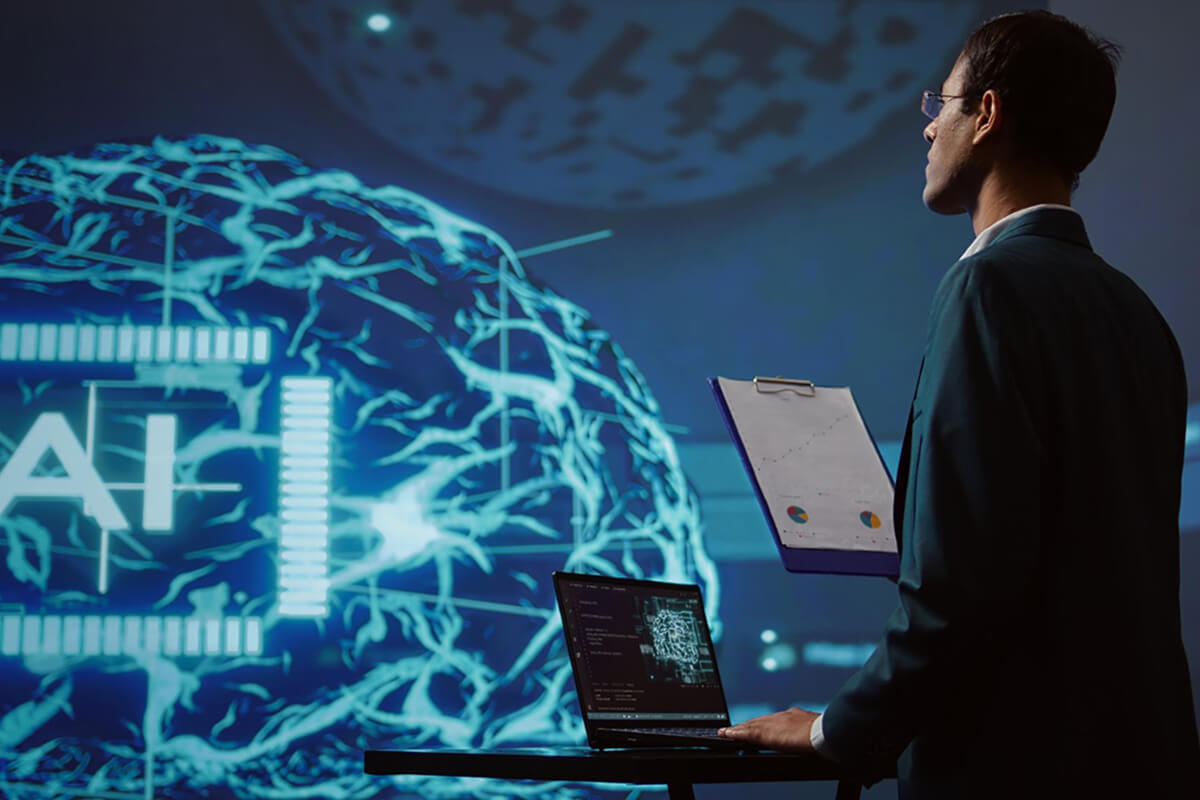AI in Mental Health: Transforming Diagnosis and Care Access
Given the fact that mental health is a universal component of well-being, it is ironic to consider millions of people not capable of offering themselves proper care because of stigma towards this problem, limitations in resources, and the unavailability of professionals. Here comes artificial intelligence and how it changes the look of the concept of mental health into offering innovative solutions toward diagnosing and treating and offering access to care more efficiently. Here, in this blog, we are going to explore how AI is revolutionizing mental health, the potential to improve early diagnosis, personalized treatments, and how it is capable of expanding care to underserved populations.
1. AI for Early Detection and Diagnosis
This is why AI can be a helpful resource in early diagnosis of mental health issues. In the olden days of diagnosis, traditional methods such as self-reported and clinical assessment were used, typically unscientific or somewhat non-systematic. However, AI can analyze data points such as speech patterns, facial expressions, and even social media activity that can reveal early indicators of mental health disorders such as depression, anxiety, or PTSD.
a. Natural Language Processing (NLP) for Symptom Identification
NLP algorithms are computed to decode speech or written language to identify critical symptoms that could be signaling mental distress. As such, AI models can pick minor cues in language use, such as negative sentiment or changing tone. Thus, an AI-driven platform could look through the text messages or content on social media and flag a user at risk of depression or suicidal thoughts.
b. Voice Biomarkers and Behavioral Data
Furthermore, AI is applied to diagnose biomarkers for voices, which manifest as some form of variances in pitch, cadence, or voice intensity that can hint at emotional states. This is to say, AI technology can audit the speech of a patient with signs of mood disorders like bipolar disorder or anxiety. Moreover, AI models analyze behavior data, such as levels of activity, sleep, and any patterns that tend to be more erratic than normal in patients with mental health issues.
2. AI Guiding Treatment Plans and Personalization
The application of AI most promising for mental health probably is the creation of personalized treatment plans. AI can analyze vast amounts of patient data-including genetic, psychological, and lifestyle information-to guide treatment strategies unique to individual needs.
a. AI for Personalized Therapy Recommendations
Using artificial intelligence through machine learning, the AI system can predict how any individual would react to a chosen form of therapeutic treatment. Some patients may benefit more from CBT than others, while others would benefit more from other therapies or medications based on mindfulness. It is through AI that a mental health professional can determine which treatment is best for a patient by assessing how he has responded previously and within his previous life history.
b. AI-based Drug Management
AI is also being used to fine-tune medications that treat mental health disorders. For instance, AI can assist psychiatrists adjust dosages, switch drugs, or prescribe a combination that would have a better chance of fewer side effects. This is not so much trial-and-error with psychiatric medication.
3. Improving Access to Mental Health Care
One of the biggest ways that AI impacts mental health care is increasing access, especially in remote or underserved locations. The lack of mental health professionals and stigma of mental health support often dissuade people seeking necessary treatment. AI-based tools such as chatbots, virtual therapists, and mobile apps are easily closing the gap.
a. AI Chatbots and Virtual Counselors
Instant support related to mental health with AI chatbots, such as Woebot and Wysa: Through conversations, they provide people with ways to cope with anxiety, depression, or stress. The best part is that they are available 24/7 and being a first step toward therapy for someone who is nervous about talking face-to-face is great.
Virtual therapists with AI are also on the rise as low-cost options, consulting patients on self-help interventions and keeping follow-up recordings. These tools will not be a replacement for a human therapist but are useful while on the way as a point of interim support and assistance.
b. Mobile Mental Health Applications
AI-enabled mobile apps alter the quest in the use of mental health services. An app typically offers or consists of the following resources: self-assessment tools, relaxation techniques, and mood tracking. Through AI, these apps can give particular reactions to an individual’s state of mind and further suggest what action a user can undertake based on this state. Many provide access to teletherapy; this way, the user reaches licensed professionals who offer virtual counseling.
4. Ethical Considerations and Challenges
Although AI holds vast potential in significantly improving the quality of care of mental health, it must also deal with the ethical issues that accompany such technology. Issues related to it include privacy and security issues, use of such services over humans, and more.
a. Data Privacy and Security
Mental health information is sensitive, so the privacy of the patient needs to be preserved. AI systems that analyze personal information, voice recordings, or social media activity must ensure strong security for user data. They can do this through encryption, anonymization, and user consent policies.
b. Human-Centric Aspect of Mental Health Care
AI will supplement mental health but not replace its human element. While the data and insights garnered from AI could be the best source, empathy is a backbone of therapeutic settings, while emotional support and trust take considerable time to be established only with human therapists.
5. Future of AI in Mental Health
It is still very early, but the future of AI in mental health is bright indeed. As more advanced AI systems enter the mental health arena, they are going to be able to diagnose mental health conditions far more accurately than has ever been possible before, provide increasingly tailored treatment plans, and make access to care ubiquitous across the globe. The capability and limitations of AI in mental health could complement work done by a human therapist to ensure that mental health services are both effective and accessible.
Conclusion
AI transforms the future mental health landscape from how diagnoses are made to personalizing treatment plans and increased access to treatment, though challenges remain related to data privacy and the ethics of their use. AI will undoubtedly revolutionize the way mental health care is addressed. As the technology develops, it should become an indispensable aid to millions around the globe in receiving timely and effective mental health support.
Due to proper safeguards, AI can enhance access to, personalization in, and efficiency for mental health care while preserving the human element fundamental to healing.








